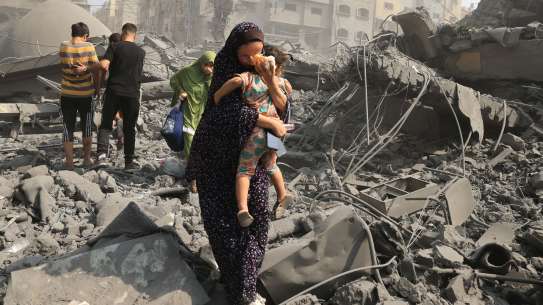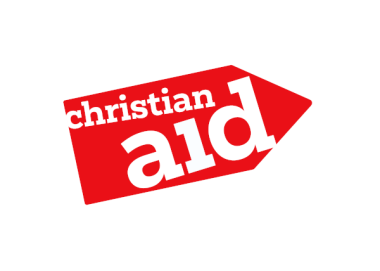Christian Aid has been working with the poorest and most vulnerable people in the Middle East since the early 1950s, when we provided humanitarian relief to Palestinian refugees.
Today, as Palestinians continue to experience exile, blockade, relentless spikes in violence and huge increases in land dispossession, we work with Palestinian and Israeli partners to protect human rights and promote resilience for Palestinian communities and civil society.
All our work aims to support the foundations for a just, lasting peace for all.
Our aims
- Protect, promote and defend human rights for the protection of Palestinians in the Middle East.
- Strengthen the resilience of individuals, communities and institutions, so they can respond when faced with threats to their lives, land and livelihoods.
- Deliver humanitarian responses that are accountable, impartial and strengthen local capacity.
We work on
Protecting human rights
Our partners work to challenge discriminatory laws, practices and decisions affecting Palestinians living under occupation in the West Bank and Gaza, and Palestinian citizens of Israel. We support individuals and communities to claim their rights and fight to end impunity. Our partners’ work is crucial in promoting awareness of the context in the region and worldwide, exposing human rights violations and putting pressure on authorities to hold them to account. We support institutions and communities that will make peace possible and hold the Israeli government to account for breaches of human rights and international law, with the goal of ending the conflict, occupation and the blockade.
Promoting resilience
The prolonged Israeli occupation, including coerced displacement, land, sea and air blockade of Gaza, has devastated the livelihoods of Palestinians. Many of the communities we support are unable to access their land or vital resources, such as water. We support the resilience of these communities by developing community-led approaches to ensure they have a greater ability to respond when faced with emergencies and threats to their lives and livelihoods. This approach allows communities to take ownership of their own needs and seek solutions that work for them, leading to more sustainable impact.
Humanitarian response
Ongoing insecurity, violence and disaster in the region continue to affect the lives of Palestinians and Israelis. When violence erupts or a global pandemic threatens, we respond through our local partners to provide immediate, impartial and accountable humanitarian support. Our partners on the ground continue to provide support in the weeks, months and even years after violence or disaster has occurred, enabling communities to recover, rebuild and be stronger to face the next emergency.
Transforming power to build peace
We support individuals and communities, in the Middle East and beyond, to understand what’s driving poverty and violence as the first step towards a just peace. We work with partners who challenge abuses of power through international institutions such as the International Criminal Court. All our work promotes transparent and inclusive approaches towards justice. In this way, we contribute to peace and security for all.
How it got this way
Even before this latest escalation of violence, the humanitarian need in Gaza has been acute for many years due to the 16-year-old blockade enforced by Israel and Egypt and a lack of effective government in Gaza.
Across the occupied Palestinian territories, there is a sense of lawlessness and Palestinians feel hopeless. Gaza’s residents are living in incredibly harsh conditions, with soaring unemployment and poverty rates and a reliance on food aid.
Despite this, the international community has failed to step in, hold all sides to account and work to ensure a peace that secures justice, dignity and prosperity for all.
Noura Amin Sa’ad lives in the occupied Palestinian village of Beit Skariya in the West Bank. Her home is surrounded by illegal Israeli settlements. Noura, and other Palestinians like her, find themselves almost completely cut off from access to essential services such as healthcare and education.
Noura and the community in Beit Skariya have been supported by Christian Aid partner the YMCA Women’s Training Programme to find ways to challenge the Israeli occupation and to build the resilience of individuals faced with threats to their land, lives and livelihoods.
Our programmes
From 2017 to 2022, in partnership with Christian Aid Ireland and with the generous support of the Irish government, we’re delivering a high performing human rights programme that constantly learns and adapts to the changing needs of communities. We base all our work on experienced analysis of how we think change will happen and test new strategies for greater impact for the communities we serve.
See this ODI-CAI resource for more information

